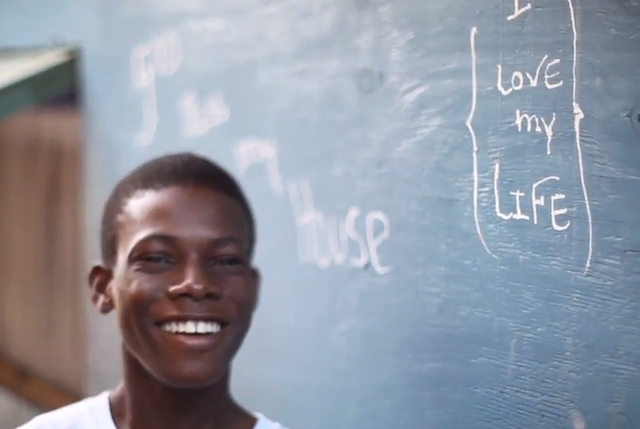
I couldn’t stop crying. I tried, but the tears would not stop spilling from my eyes.
How could that happen? I asked myself time and time again. Yes, I knew there was an epidemic, and yes, I was aware that many people had died, but why was this particular thing bringing me to tears?
I can’t tell you what it is that I saw that deeply upset me — I want you to see it for yourself. And maybe if you are moved like I was, you’ll take action just as I did.
***** While serving as aid workers in Haiti, Americans David Darg and Bryn Mooser created a documentary that sheds light on how U.N. relief workers negligently brought cholera to Haiti buy flushing (their) waste and raw sewage into a river most Haitians use for drinking and bathing. Their film, Baseball in the Time of Cholera, was originally meant to document the triumphs of a baseball team of young boys they helped organize during a time of pure desperation in Haiti. The story of this team, and in particular, a young boy named Joseph Alvyns calls attention to a crisis that has been virtually ignored by the rest of the world since the initial media coverage dwindled after the outbreak in 2010.
The film was shown at the Tribeca Film Festival and is now available to the public on various social sharing networks such as YouTube and Vimeo. The filmakers hope that the documentary will inspire people to sign the Fight Cholera in Haiti petition, which is one of many successful initiatives they have launched to urge members of Congress along with Ambassador Rice, to put pressure on the UN to accept responsibility for bringing cholera to Haiti.
Twenty-eight minutes may seem like a lot of time to spend watching a video online, but I can assure you that you will be moved by this film. There is a personal element — a story told through the eyes of a young boy — that speaks to humanity as a whole. I felt responsible for this boy even though I have never met him, nor did I have anything to do with the crisis that affected him. But as another human coexisting on the same planet as this boy, I felt it my responsibility to support him in any way possible, even if the only thing I could do was to use my name as part of a stronger, more collective voice that will hopefully demand justice for all those who suffered in vain.
*To learn more about other countries in need, check out our piece on the drought in the Sahel.



